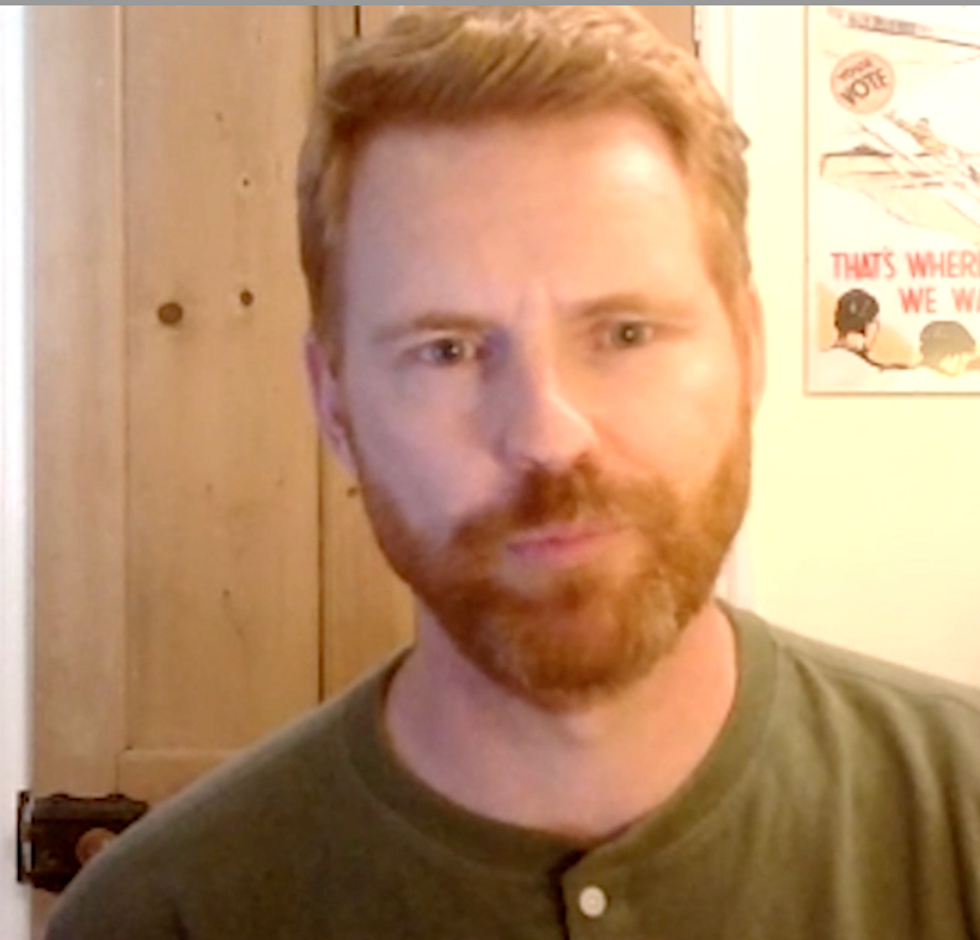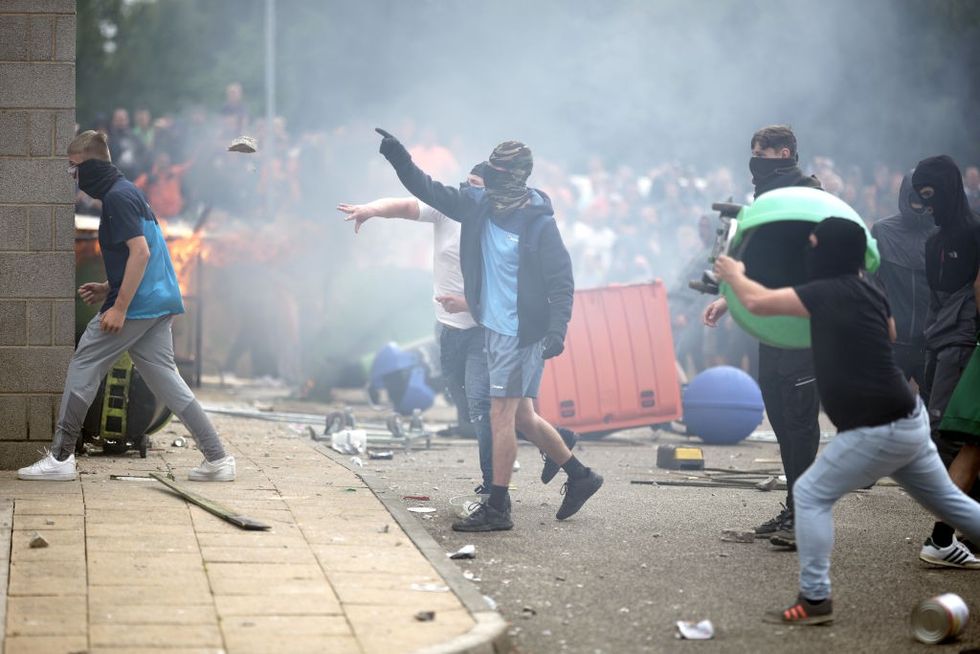Paul Embery rages at working-class betrayal as Britain goes up in flames: 'Writing was on the wall'
More than 400 people have been arrested and 100 charged as police brace for another night of violence
Don't Miss
Most Read
Trending on GB News
When three young girls were stabbed to death at a Taylor Swift-themed holiday club in Southport last week, it exposed a fault line in Britain.
Sir Keir Starmer and the political elite have been unequivocal in their condemnation of "far-right thuggery" as riots spread through towns and cities across the UK.
More than 400 people have been arrested and 100 charged as police brace for another night of violence.
The initial response to the riots is understandable and necessary.
As bricks are hurled at police and overturned cars are torched from Birmingham to Belfast, rioters must face the "full force of the law", as the Prime Minister put it in a Cobra emergency meeting on Tuesday.
Indeed, the images and videos circulating online are reprehensible: mosques and businesses have been attacked, and a mob chanting "get them out" and "burn it down" broke into a hotel housing asylum seekers in Rotherham.

Paul has warned of the impact of real economic disruption and demographic change on the working class
Paul Embery
The moment calls for swift justice but many Britons are caught in a double bind between disavowing the violence and sharing the resentments that are fuelling it.
These positions are not mutually exclusive, of course, but for decades the chattering classes have pretended otherwise.
They have told Britons that any concerns about immigration are an expression of bigotry and only full-throated support passes the purity test.
In working-class communities across Britain, this cognitive dissonance has become "unsustainable" and people have finally cracked, according to Paul Embery, a trade unionist, writer and broadcaster.
His views on this subject are worth taking seriously. Growing up in Dagenham, the long-standing Labour Party member has seen first-hand the twin effects of rapid demographic change and deindustrialisation.
In the 2001 census, 81 per cent of people in Barking and Dagenham identified as “white British.” Twenty years later, this plunged to 44.9 per cent.
In its heyday, Ford's Dagenham plant - once the biggest factory in Europe - employed 40,000 people. Around 2,000 people work there today.
In his book, Despised: why the modern Left loathes the working class, Paul writes about how these forces have converged over time and created a volatile environment.

Politicians need to deal honestly with people's grievances or rioting will continue, Paul fears
GettyMake no mistake: Paul deplores the violence seen on our streets. He regards the rioters' actions as "completely inhumane", adding that anyone threatening public safety should face serious jail time.
But it isn't lost on him that we are seeing the worst race riots since the 1970s, adding that extremists will take up the cause when the "political class" doesn't.
"It's not a shock to anyone who was in touch with these communities over the last 20 years and listening to the conversations that were going on there," he told GB News, adding: "If you are surprised by what we are seeing - you haven't been paying attention. The writing was on the wall."
Paul has repeatedly warned people in the Labour movement that rapid and large-scale immigration causes the same disruption to working-class communities as rapid and large-scale movement of capital but to no avail.
"Anyone on the left who argues the traditional position of controls and regulation of the labour supply is looked upon as some kind of crank."
As a dyed-in-the-wool trade unionist, he finds it "striking" that his party has "embraced open borders" with zero regard for regulating market dynamics.
For Paul, you just have to look at the numbers - the Office for National Statistics estimated net migration was close to 700,000 last year - to realise that if you visit this upon "already hard-pressed working-class communities, it's simply not sustainable in terms of the impact on infrastructure, community cohesion, pressure on public services, wages and so on".
Instead of dealing with the issue honestly, successive governments have "sneered at and patronised" working class communities for raising concerns, he says.
The same people who have for years "preached the gospel of difference" are now calling for unity, Paul adds.
The ballot box is like a "pressure valve", he explains, adding that when politicians consistently promise and then fail to respond to the "double whammy" of real economic disruption and profound demographic change, people will resort to more "direct methods".
Can Sir Keir turn it around?
Paul is doubtful. He has been encouraged by the Labour leader standing up to the hard left in recent years - a move which handed him the keys to Downing Street.
But Sir Keir is a product of the "liberal, centrist and progressive body of opinion" that dominates so much of our national life, from politics to the media and other traditional institutions, he laments.
The Prime Minister will therefore likely duck difficult conversations around immigration for fear of ceding "too much ground to the reactionaries", the trade unionist tells GN News.
Unless the PM changes course, the rioting will likely continue, he fears.
This does not augur well for the future of his party, Paul laments, adding: "In the medium to longer term, I think the Labour going to have an uphill struggle to keep the support of the working class."









